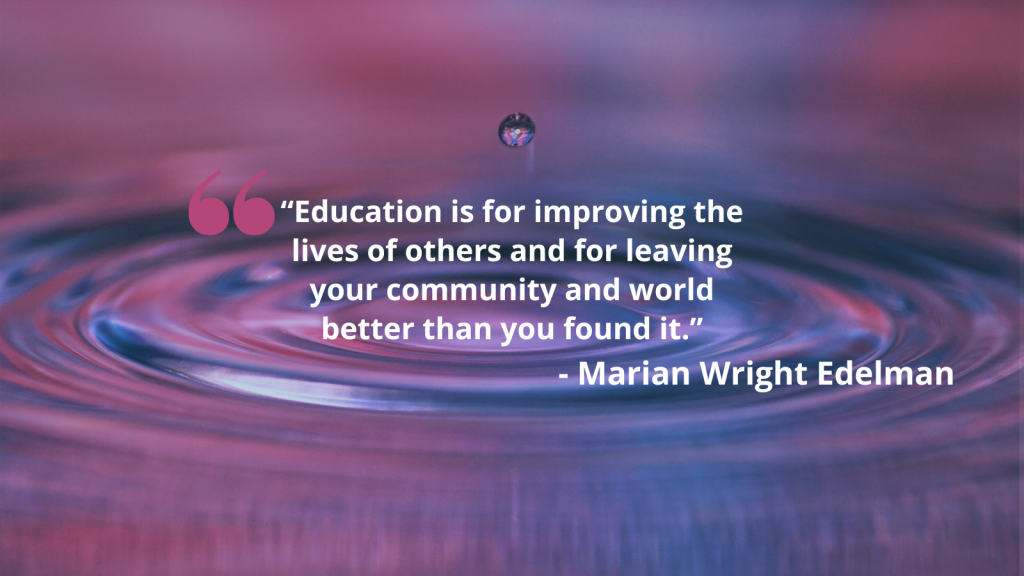Introduction

When talking about equity in education, it must be emphasized that we are not trying to fit equity into the current inequitable systems operating. When we try to create equity within the systems that create inequities, we often end up replicating inequitable practices and beliefs. Sarah Hare asks us to “consider how openness, when disconnected from its political underpinnings, could become as exploitative as the traditional system it had replaced” (Sarah Hare, Open at the Margins). This quote calls attention to the need for us to look at the systems we interact with and highlight the educational practices we use by making connections back to the communities around us.
The central metaphor of this guide is the idea that our actions have ripple effects. This chapter highlights an overarching overview of methods and practices that you, as an educator, can take to contribute to equitable systems outside of the classrooms, beginning with a commitment to lifelong learning. It also asks you to consider how you can make connections to communities outside of the classroom , making learning a communal endeavor. Finally, we discuss how all of these lessons learned along the way can be shared back to the broader community, whether that’s in open education or elsewhere.
Think about your own values and how they align with actions that you can take in your departments, institutions, and more broadly in higher education, to shift educational systems to become a socially just environment. For faculty, this could look like taking your lectures or presentations and hosting events more public beyond the classroom, such as a library. Most libraries allow people to book spaces for free for educational purposes. What if you were to take a lecture and deliver it at a library, opening up that knowledge to a wider audience? For administrators, are there ways to invite a wider range of communities to events on campus?
Resources:
Edelman, Marian Wright. (1992). The Measure of Our Success: A letter to My Children & Yours. Boston, Beacon Press.
Media Attributions
- Beyond OER Creation © Jess Bate adapted by Kaitlin Schilling is licensed under a CC BY (Attribution) license

